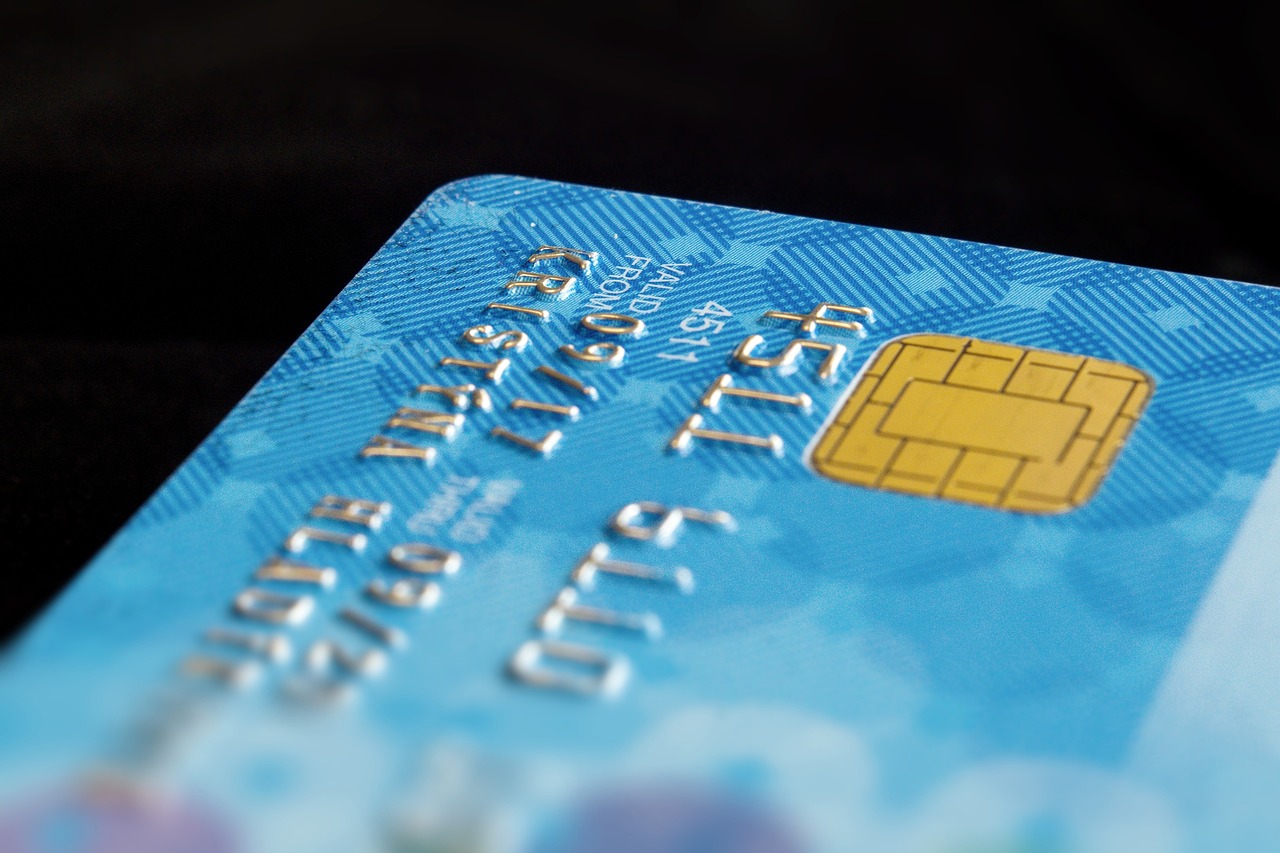Does a Business Loan Affect Your Personal Credit Score?

Tons of people wonder if a business loan affects your personal credit score. And, the answer isn’t as simple as yes or no… But, it’s not all that complicated either.
Here, I’ll explain when a business loan affects your personal credit (and when it doesn’t). Then, you’ll learn the potential impact of applying for, obtaining, and paying off a business loan on your personal credit.
This is what’s in store:
- When Do Business Loans Affect Your Personal Credit?
- Can You Get a Business Loan Without Affecting Personal Credit?
- Frequently Asked Questions
- Final Takeaway
Now, let’s get the ball rolling…
When Do Business Loans Affect Your Personal Credit?
When you’re getting a business loan, your personal credit might be affected, but it depends on a few things. If the lender asks for your Social Security Number (SSN), they might report your account and payments to credit bureaus, like Equifax®, TransUnion®, and Experian®. That’s when it hits your personal credit.
But just giving your SSN doesn’t guarantee they’ll report. Some lenders use it for a credit check or to set up a personal guarantee. A personal guarantee means you’re on the hook if your business can’t pay back the loan. And yes, it can impact your personal credit, even without your SSN initially.
If they only want your Employer Identification Number (EIN) or Tax ID Number, your personal credit is less likely to be affected. EINs are for businesses, while SSNs are personal.
Important to know: not all lenders report to credit bureaus. Some might check your credit but never spill the beans to the bureaus. So, it’s good to check with the lender.
Remember, keep an eye on your credit reports to stay in the know about any changes. Your credit journey might be smooth or have a few bumps—it really depends on the lender’s playbook and your ability to repay.
You might also like: Business Credit vs Personal Credit: What are the Differences?
1. When You Apply for a Business Loan
Applying for a business loan might have a minor impact on your personal credit. Lenders usually perform a credit check, resulting in what’s called a “hard inquiry” on your credit report. While one inquiry has a small effect, multiple inquiries in a short time may signal risk.
So, be mindful that each application can dock your score by a couple points, but it won’t majorly sway your score. And, any negative impact should be temporary with on-time payments.
You might also like: A Comprehensive Self-Help Credit Union Review
2. When You Obtain a Business Loan
Getting approved for a business loan can impact your personal credit more. If the lender asked for your SSN and reports to credit bureaus, your personal credit could become linked to the business loan. In this case, a new account appearing on your report can impact your credit utilization, credit mix, and your overall amount of debt.
A revolving business loan may appear on your report like a credit card. And, if you’ve got a zero balance when the account first reports, it could improve your credit utilization.
A business loan might help improve your credit mix, if you lack term loans. Some personal lenders like to see a mix of accounts before they will approve you for loans, particularly mortgages.
A term loan that you use at opening can show increased debt on your personal credit report, which runs the risk of impacting your debt to income ratio for future personal loans.
You might also like: This is How to Improve Your Credit Score to Buy a House Fast
3. When You Make Payments on a Business Loan
Regularly making on-time payments on a business loan that reports to credit bureaus positively influences your business and personal credit. The lender, if reporting, communicates your positive payment history – over time, this can boost your credit score, reflecting your ability to manage debt responsibly.
Conversely, late payments or defaults can significantly harm your credit score, portraying financial strain and risk to creditors. If left unchecked, the loan can default, go into collections, and even create liens… More on that in a minute.
You might also like: DIY Credit Repair Demystified (It’s Not as Hard as You Think)
4. When You Pay Off or Close a Business Loan Account
Paying off a business loan generally has a positive impact on your credit. It demonstrates your ability to fulfill financial commitments, which can boost your credit score. However, closed accounts, whether positive or negative, can remain on your credit report for a while.
And, if an account is closed and falls off of your report, it can sometimes decrease your average age of credit, which can have a slight, negative impact on your score.
Finally, if your payment history was consistently good, it generally contributes positively. In contrast, if there were issues like missed payments, the impact might linger for a period.
You might also like: Is Rocket Money Safe? The Complete Truth
5. When You Default on a Business Loan
Defaulting on a business loan has a severe negative impact on your personal credit. If your business can’t meet its obligations and there’s a personal guarantee, you become personally responsible.
A defaulted loan is likely to be reported to credit bureaus as a major delinquency, and can lead to consequences such as:
- Personal liability
- Credit score damage
- Stain on your credit for up to 7 years
- Collection actions
- Legal consequences
- Future borrowing challenges
- Business closure
In all, a defaulted business loan can significantly lower your personal credit score, making it harder to secure credit for yourself and any future businesses.
You might also like: This is the Truth Behind the Pay to Delete Letter
Can You Get a Business Loan Without Affecting Personal Credit?
While your personal credit is generally at risk when you apply for a business loan, it is possible to secure a business loan without affecting your personal credit – you just need to make strategic choices in the borrowing process.
Firstly, you should establish a distinct business credit profile using an Employer Identification Number (EIN) or Tax ID Number and a DUNS number through Dun & Bradstreet (D&B). This enables your business to build its credit history independently.
Next, when seeking lenders, opt for those who do not report account activity to personal credit bureaus. Look for lenders who focus solely on business credit reporting agencies:
- Equifax Business
- Experian Business
- Dun & Bradstreet
Additionally, when you provide your EIN instead of your Social Security Number (SSN) during the application process, you ensure that the loan is associated primarily with your business – this minimizes the impact on your personal identity.
While I don’t really recommend this because the repayment costs tend to be higher than with traditional banks and credit unions, you can also explore non-traditional lenders. Peer-to-peer platforms or online lenders may offer more flexibility with personal credit checks or alternative reporting practices.
Business credit cards can also be a viable option if the card issuer reports exclusively to business credit bureaus. Furthermore, consider asset-based financing, where the loan is secured by business assets rather than personal ones. This safeguards your personal credit if the business encounters challenges in repayment.
While these approaches can mitigate the impact on personal credit, it’s crucial to thoroughly understand each lender’s terms and practices — some business-oriented lenders may still conduct personal credit checks or request a personal guarantee under specific circumstances.
Always review the loan agreement details and communicate directly with the lender to address any concerns before moving forward.
Which Business Structures Can Protect Your Personal Credit?
While some business structures provide a higher level of separation between businesses and their owners, complete disconnection from personal credit may not be possible in all scenarios – this is especially true when seeking loans or credit lines.
Lenders typically consider the personal credit history of business owners, and personal guarantees are required more often than not. Consulting with legal and financial professionals can provide specific insights based on your business needs and circumstances.
With that in mind, some structures generally provide a higher degree of separation between personal and business credit
For example, a limited liability corporation (LLC) provides “limited liability” protection, which separates personal assets from business debts. While personal credit might be checked during certain business transactions, the business’s credit is typically distinct. This doesn’t protect you from a personal guarantee.
Corporations, whether C-Corps or S-Corps, are also considered separate legal entities. Personal assets are generally shielded from business liabilities. Business credit is established under the corporation’s name, minimizing direct connections with personal credit (still doesn’t completely sever you from your business loan).
Limited partnerships (LPs) and limited liability partnerships (LLPs) offer a degree of separation between personal and business credit. In an LP, limited partners have limited liability, while in an LLP, partners generally have protection from the actions of other partners. However, personal credit might still be relevant.
The best way to protect your credit score when taking out a business loan is the same as with all credit-related scenarios: Make your payments on-time as agreed. And, only apply for financing when you need it.
Recommended: How to Read and Understand Your Credit Report
Frequently Asked Questions
In general, the debt of an LLC is considered separate from personal debt. The limited liability structure protects personal assets from business debts. However, if you’ve personally guaranteed the LLC’s debt or commingled personal and business funds, there can be implications for personal liability.
Yes, a business loan can impact your ability to buy a house. Lenders often assess your debt-to-income ratio, which can include any outstanding business debts. Large business loan payments may affect your eligibility for a mortgage, as they impact your overall financial picture.
The amount you can get for a startup business loan varies widely and depends on factors such as your business plan, creditworthiness, and the lender’s policies. Startup loans can range from a few thousand to several million dollars.
Yes, commercial loans can appear on your credit report, especially if you personally guarantee the loan or if the lender reports business account activity to credit bureaus. However, certain lenders may only report to business credit bureaus, keeping the business’s financial history separate from personal credit.
It is nearly impossible to secure a business loan with no income. Lenders typically assess your ability to repay the loan, and a lack of income will usually raise concerns. However, you can explore alternative funding options, such as equity financing or finding a co-signer. Some lenders may also consider factors beyond income, such as business projections and credit history.
Final Takeaway
In summary, a business loan can impact your personal credit at different stages. Applying might give a minor hit, but obtaining and managing the loan significantly affects your credit. Paying it off can boost your score, but defaulting can be a credit nightmare.
To protect your personal credit, opt for lenders not reporting to personal credit bureaus, and use your Employer ID instead of your Social Security Number. Keep payments on time and only apply when necessary.
Remember, the key is strategic moves and understanding your lender’s terms. It’s a balancing act – navigate wisely, and your credit journey could stay on the smoother side.
To dive even deeper into the world of credit and get that credit score up fast so you can move forward with your life, check out Credit Secrets today!








